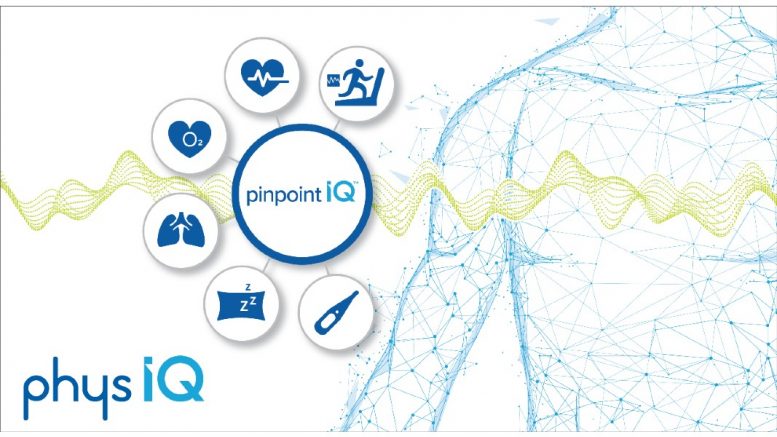physIQ, Inc. and the US Department of Veteran’s Affairs (VA) have advanced their collaboration to address heart failure care to an interventional trial phase. In this next phase, Veterans will be actively monitored so care can be administered in near real-time to avoid or lower the chance of re-hospitalization, allowing the VA to improve patient care while driving down costs.
In early 2020, physIQ and the VA shared the results of a breakthrough study aimed at validating the ability to detect the onset of heart failure exacerbation using wearable sensors and machine learning-based personalized physiology analytics. Published in Circulation – Heart Failure, a journal of the American Heart Association, the observational phase of the LINK-HF study was designed to assess the ability to predict rehospitalization due to heart failure exacerbation using sophisticated analytics applied to continuous wearable sensor data. This study demonstrated a 7-10-day early warning timeframe, which showed promise to reduce hospitalization and improve quality of life of patients with heart failure.
“This new interventional study will provide the real life experience needed to demonstrate how this cutting-edge technology can be leveraged to provide clinicians with more proactive information to manage at risk patients, such as those with heart failure, to keep them out of the hospital. Utilizing this type of innovative solution will enable VA to provide the best possible care to Veterans at the highest value,” says Dr. Stephen L. Ondra, former Senior Advisor for Health Affairs to the VA Secretary under President Obama. “The LINK-HF study demonstrated the potential to detect clinical changes early enough in the process to intervene before a patient became more seriously ill. This study will put the technology to the test in clinical practice, and in doing so, has the potential to improve care and the quality of life of patients with heart failure and eventually other high risk medical conditions.”
Heart failure patients are most vulnerable in the weeks following a recent hospitalization, and often find themselves readmitted. In this multi-site interventional study, patients at discharge will be provided a set of disposable adhesive biosensor patches for the chest, and a smartphone to upload their data to the pinpointIQTM platform. Within the platform, sophisticated FDA-cleared artificial intelligence-powered algorithms learn the dynamic digital signature of each patient’s individual vital sign behavior and detect changes, even subtly. Such changes in vital signs can be an early warning of a deteriorating physiological condition reflecting exacerbation of the underlying disease.
In the study, patients will be contacted in the event that the analytics suggest a need for early intervention to avoid an exacerbation before it becomes an acute care emergency. PhysIQ’s innovative solution addresses a critical, unmet need for continuous remote monitoring of patient’s vital signs which could mitigate the cost and risk of invasive heart failure hemodynamic monitoring devices that have shown effectiveness in the last decade.
“PhysIQ’s technology is allowing doctors and nurses to be proactive, as opposed to reactive, in the management of chronic illnesses, which could result in preventing any further deterioration,” said Gary Conkright, CEO of physIQ. “As we continue to push the boundaries of this emerging technology, we are thankful for a partner like the VA and are proud for the opportunity to serve those that have served us.”
In the U.S., hospitalizations for heart failure (HF) represent 80% of costs attributed to HF care. HFis the most common hospital discharge diagnosis for Veterans. Furthermore, hospitalization for HF is associated with adverse prognosis – the risk of mortality increases more than 4-fold in the first 3 months after discharge. Within the VA system, the importance of decreasing preventable HF hospitalizations has been recognized by The Chronic Heart Failure Quality Enhancement Research Initiative (CHF QUERI), and the 30-day readmission rate is one of the VA’s Strategic Analytics for Improvement and Learning (SAIL) measures.

